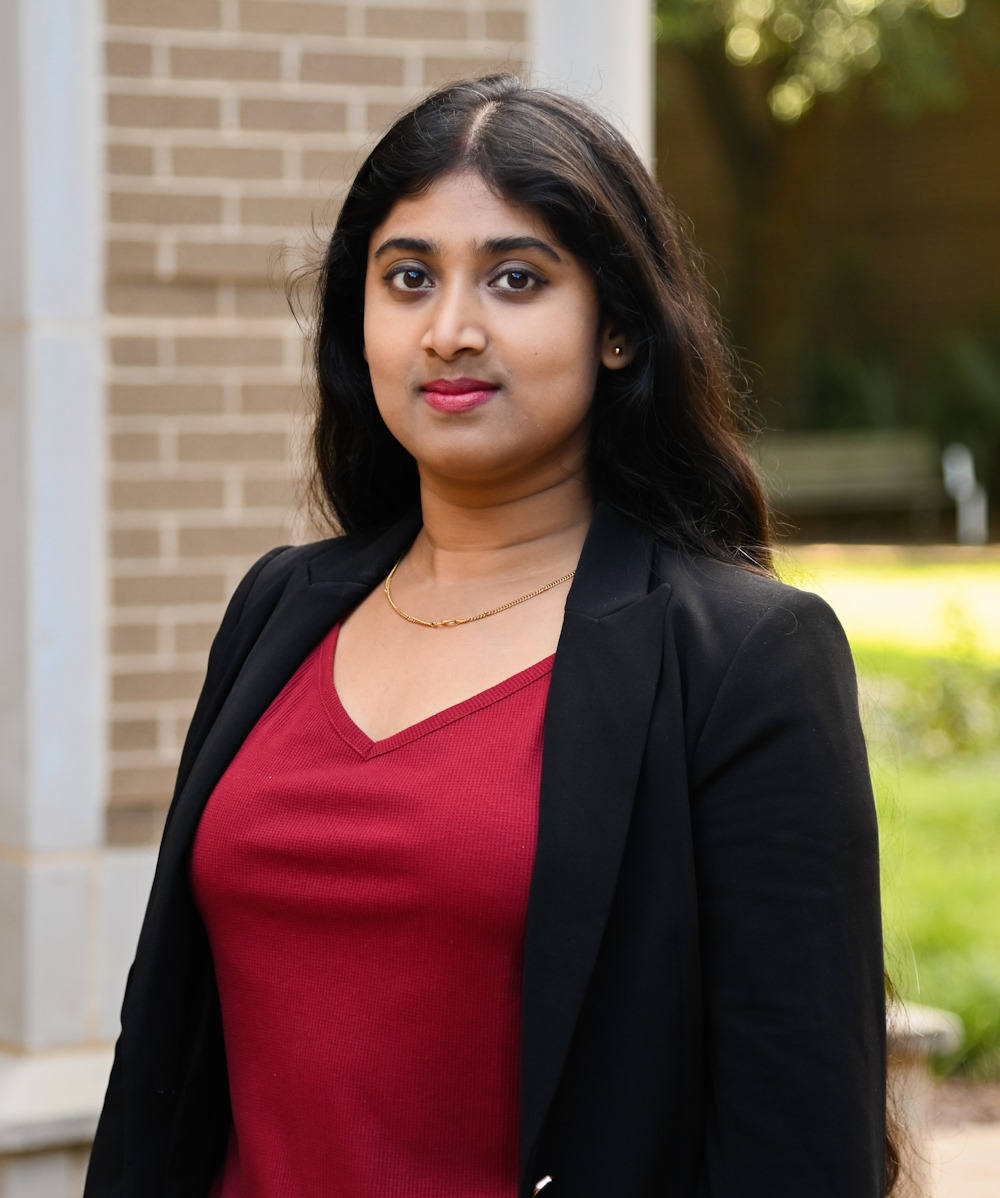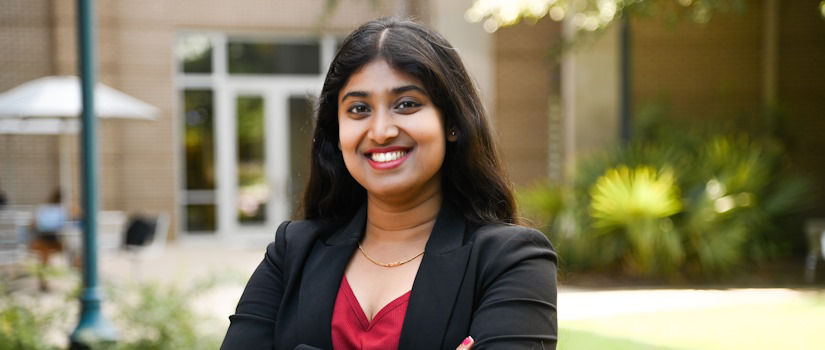September 19, 2024 | Erin Bluvas, bluvase@sc.edu
Biostatistics assistant professor Enakshi Saha thought physics held the answers to life’s toughest questions. But then she took a high school statistics course.
“I realized this is a subject that gives me the power to answer any questions, not only about grand things like the universe, but also smaller important things that impact people's lives on a daily basis, such as health care or the economy,” Saha says of her pivot from pursuing a career as a physicist.
She completed bachelor’s and master’s degrees in the field at the Indian Statistical Institute in Kolkata and then traveled to the University of Chicago for her doctoral degree. Saha was particularly interested in Bayesian statistics because it allowed her to integrate prior information with available data. This opened up a world of possibilities for the Ph.D. student, and she began working on Bayesian nonparametrics and high dimensional statistical models for macroeconomic data with the goal of forecasting economic bubbles.
“Then 2020 happened,” Saha says. “Like every other scientist I knew, I started working on models to predict the pandemic.”
After losing several close relatives to COVID-19, she officially shifted her focus away from economics and toward using statistics to improve health care. Following her 2021 graduation, Saha moved to Boston to join Harvard University’s T.H. Chan School of Public Health for her postdoctoral training.

Working with Henry Pickering Walcott Professor of Computational Biology and Bioinformatics John Quackenbush, she built models to help researchers better understand how genes and different molecules interact to cause diseases. Her time at Harvard also introduced Saha to genome-informed precision medicine.
“I realized that tailoring therapy to individual genetic backgrounds can drastically improve outcomes,” she says. “I now study the genomics of aging and cancer using Bayesian statistics and machine learning to identify how disease mechanisms vary between individuals of varying age and sex, so that we can design better personalized therapies for individuals across diverse backgrounds.”
Saha joined the Department of Epidemiology and Biostatistics to continue this work because of the Arnold school’s reputation for high-impact research, particularly in the area of health disparities. The welcoming and supportive environment offered by her department confirmed her decision.
“Dr. Saha’s breadth of understanding of biostatistical methods and her focus on applying these methods to translational topics related to genomic medicine represent a great step forward for our department, the Arnold School and the University of South Carolina," says chair Anthony Alberg. "I could not be happier that she has joined the department."
